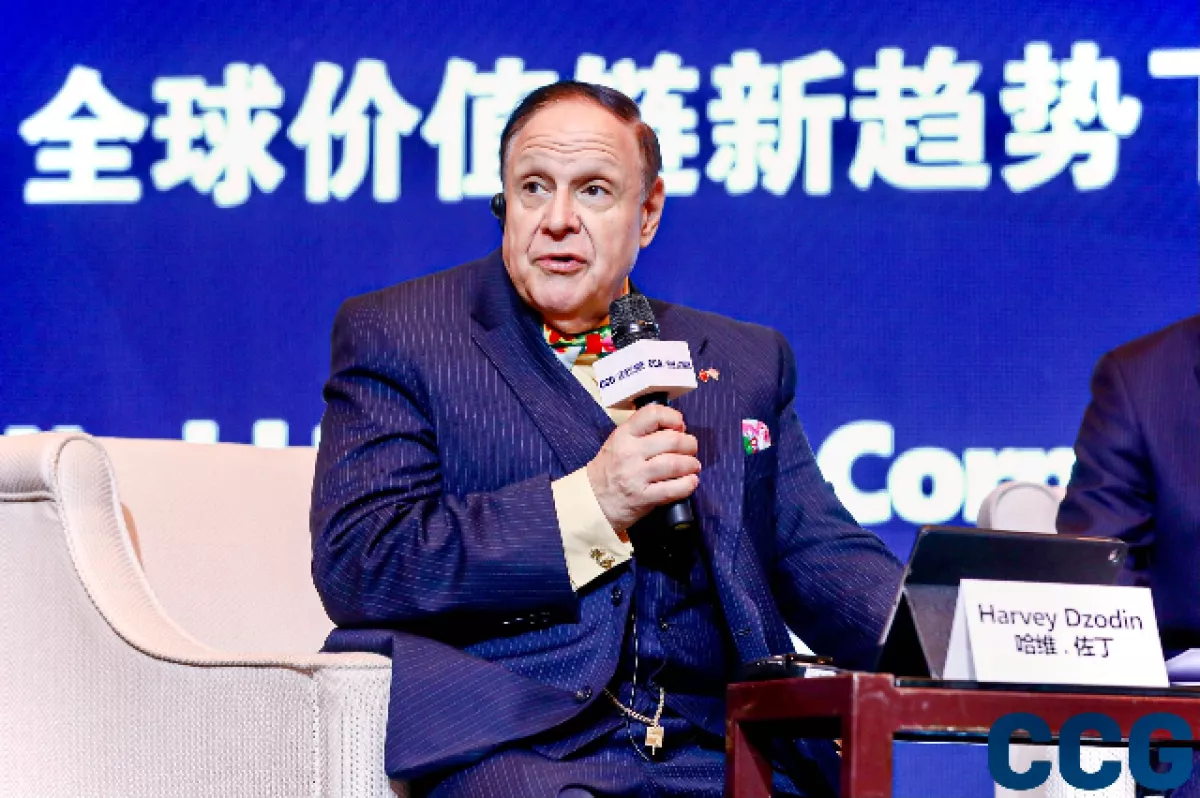COP29: Azerbaijan’s moment to step into global sunshine Article by South China Morning Post
The South China Morning Post has published an article by Harvey Dzodin on the upcoming UN climate conference (COP29) scheduled to take place this month in Baku. Caliber.Az reprints the article.

Cop29, the UN climate change conference, convenes in Baku, Azerbaijan’s capital, from November 11-22. Compared to Cop28 host, the United Arab Emirates (UAE), less is known about Azerbaijan – but that is about to change. The South Caucasus country bridging Eastern Europe and Western Asia is poised to be a middle power in a multipolar world.
Cop29 will focus on the funds needed to limit global warming to the Paris Agreement target of 1.5 degrees Celsius over pre-industrial levels. The contentious Cop28 and previous UN climate conferences will look like a cakewalk in comparison. The latest UN emissions gap report, “No more hot air … please!”, warns of a catastrophic rise of 2.6-3.1 degrees this century under current national pledges.
“We’re playing with fire; but there can be no more playing for time. We’re out of time,” said UN Secretary-General Antonio Guterres. He added: “People are paying a terrible price. Record emissions mean record sea temperatures supercharging monster hurricanes; record heat is turning forests into tinder boxes and cities into saunas; record rains are resulting in biblical floods.”
Perhaps Cop29 is the moment for Azerbaijan – with more than 10 million people, mostly secular Muslims, and with over 80 ethnic minorities – to step into the global sunshine. For me as a Jew, its settlement of about 30,000 Jews, a community dating back to antiquity and which has largely not faced antisemitism in the country, speaks volumes about Azerbaijan.
The country inhabits a politically dynamic area at the Caspian Sea, neighbouring Armenia, Georgia, Iran and Russia. A vital trade route along the Silk Road, Azerbaijan was historically a focus for powers such as the Ottomans, Persians and Russians – as it is now for Türkiye, Iran and Russia, especially after it became a major oil producer in the 19th century.
For Azerbaijan, as for China, the past is prologue. Since the restoration of independence after the Soviet collapse, there has been a desire to “Make Azerbaijan great again”, but unlike some other nations, it is doing so by pursuing an independent policy, not taking sides.
Azerbaijan has been fortifying relations with Asian countries, especially China, as part of its strategy to diversify partnerships and enhance its economic and geopolitical position.
In early July, Azerbaijan and China signed a strategic partnership declaration encompassing economic, political and cultural cooperation. Weeks later, it was reported that Azerbaijan had applied to upgrade its status within the Shanghai Cooperation Organisation from dialogue partner to observer, a prerequisite for full membership. On August 20, Baku announced its bid to join Brics, a move supported by China and Russia.
Azerbaijan is also an active participant in China’s Belt and Road Initiative. It is a key component of the Trans-Caspian International Transport Route, also known as the Middle Corridor, which roughly traces the ancient Silk Road from China to Europe across Kazakhstan, the Caspian Sea and Caucasus into Türkiye.
This corridor promises superior supply chain connectivity between China, Central Asia and Europe, bypassing Iran and Russia. It can offer shorter travel times and more diverse trade paths. By 2040, its freight volume is predicted to quadruple.
Also, Azerbaijan’s participation in the 1,195km underwater Black Sea Cable Initiative ensures that a high-voltage electric cable from Azerbaijan through Georgia to Romania and Hungary by 2030 will enhance European energy security. It will reduce reliance on Russian energy sources while hastening Azerbaijan’s transition into a green energy exporter.
Many people know of Azerbaijan and Armenia because of their deadly conflicts after the Soviet Union broke up. In this relationship, Cop29 has already helped to produce a win-win outcome.
Last December, Armenia agreed not to block Azerbaijan’s bid to host Cop29 in exchange for Azerbaijan backing Armenia’s membership in the COP Eastern European Group. They also agreed to swap detainees and said “the two countries reconfirm their intention to normalise relations and to reach a peace treaty on the basis of respect for the principles of sovereignty and territorial integrity”. Azerbaijan has officially invited Armenia to participate in Cop29.
Both sides have achieved breakthroughs through bilateral negotiations, for example by agreeing to demarcate parts of their border for the first time. At the recent Brics meeting in Kazan, Russia, both leaders met on the sidelines to reaffirm their commitment to concluding a peace treaty as soon as possible.
Cop29 could also jump-start cooperation between the two countries in renewable energy and climate resilience.
Azerbaijan is building considerable expertise in solar and wind energy as well as hydropower. It boasts large onshore and offshore renewable energy potential and is investing broadly in capacity expansion.
Cooperation with Armenia in this area may help to heal the scars of war, build confidence and reconciliation, and pave the way for a long-sought-after regional integration.
Azerbaijan plans to cut its greenhouse gas emissions by 40 per cent by 2050 and increase its renewable power capacity to 30 per cent by 2030. Despite this, the host, like the UAE last year, will surely be unfairly criticised for its long-term reliance on fossil fuels. The reality, however, is that this is a net positive because renewable energy is projected to only meet half of global energy needs by 2030, a scenario that does not include black swan events.
While there are many reasons for pessimism, I am optimistic about both Cop29 and Armenia-Azerbaijan relations. As George Bernard Shaw wrote: “You see things; and you say ‘Why?’ But I dream things that never were; and I say ‘Why not?’”
Dr Harvey Dzodin is a senior fellow of the Centre for China and Globalization, a former political appointee in Carter administration and vice president of ABC-TV.








